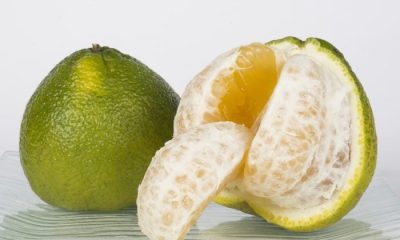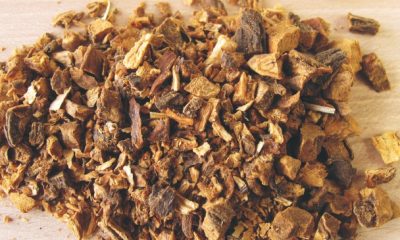Health
Side effects of drinking apple cider vinegar
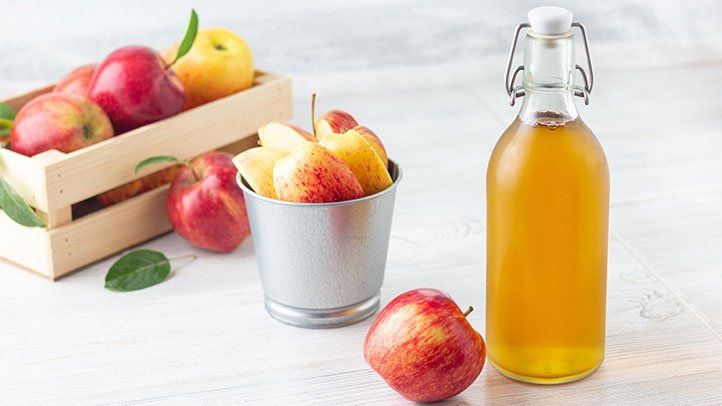
The Side effects of Apple Cider vinegar is what we are detailly going to focus on.
Apple cider vinegar is known to be a natural tonic. It has many health benefits, this has been confirmed by many scientific studies.
However, several specialists have also expressed their concerns about their dangerousness and its possible side effects.
This article informs you about the side effects and potential dangers of apple cider vinegar but it also gives you some recommendations for consuming apple cider vinegar safely.
If your favourite supermarket does not offer this economical product you can easily get it by following this link
What is apple cider vinegar?
Apple cider vinegar is made by simply combining apples with yeast.
The yeast then turns the sugar in the apples into alcohol.
Bacteria are then added to the mixture, which ferments the alcohol into acetic acid.
Acetic acid makes up about 5-6% of apple cider vinegar. It is classified as a “weak acid”, but still has fairly strong acidic properties when concentrated.
In addition to acetic acid, vinegar contains water and traces of other acids, vitamins and minerals.
Several studies on animals and on humans have shown that acetic acid and apple cider vinegar can promote fat burning and therefore weight loss, lower blood sugar, increase insulin sensitivity and improve the cholesterol levels.
Unfortunately, apple cider vinegar can cause side effects, especially when consumed in large doses.
1. Delays stomach emptying
Apple cider vinegar helps prevent blood sugar spikes by reducing the rate at which food leaves the stomach and enters the lower digestive tract.
This slows down its absorption into the bloodstream.
However, this effect can worsen the symptoms of gastroparesis, a common condition in people with type 1 diabetes.
In gastroparesis, the nerves in the stomach do not work properly, so food stays in the stomach for too long and is not released at a normal rate.
Symptoms of gastroparesis include heartburn, bloating, and nausea.
For type 1 diabetics with gastroparesis, it is very difficult to predict when insulin will be given with meals, as it is difficult to predict how long it will take for food to be digested and absorbed.
A controlled study involved 10 patients with type 1 diabetes and gastroparesis.
Drinking water with 2 tablespoons (30 ml) of apple cider vinegar significantly increased the length of time food remained in the stomach.
2. Digestive disorders
Apple cider vinegar can cause unpleasant digestive symptoms in some people.
Studies in humans and animals have shown that apple cider vinegar and acetic acid can decrease appetite and promote feelings of fullness, leading to a natural reduction in calorie intake.
However, a controlled study suggests that in some cases appetite and food intake may decrease due to a feeling of indigestion.
People who consumed a drink containing 25 grams of apple cider vinegar reported a loss of appetite as well as significantly more nausea sensations, especially when the vinegar was part of an unpleasant tasting drink.
Potassium deficiency and bone loss
There are no controlled studies on the effects of apple cider vinegar on blood potassium levels and bone health.
Recently, a case of potassium deficiency and bone loss was attributed to high doses of apple cider vinegar that had been consumed over a long period of time.
A 28-year-old woman consumed 250 ml of apple cider vinegar diluted in water daily for six years.
She was eventually admitted to the hospital with very low potassium and other abnormalities in blood chemistry.
This woman was also diagnosed with osteoporosis, a disease of fragile bones that are rarely seen in young people.
Doctors who treated the woman assume that the high daily doses of apple cider vinegar caused a decrease in minerals in her bones and those to regulate the acidity of her blood.
They also noted that high levels of acid can reduce the formation of new bone.
Of course, the amount of apple cider vinegar, in this case, was much more than what most people usually consume in a single day.
3. Skin burns
Due to its strong acidic nature, apple cider vinegar can also cause burns when applied to the skin.
In one case, a 14-year-old girl developed lesions on her nose after applying several drops of apple cider vinegar to remove two moles, according to a protocol she had seen on the internet.
In another case, a 6-year-old boy with multiple health issues developed burns to his legs after his mother treated his leg infection with apple cider vinegar.
4. Erosion of tooth enamel
Acidic foods and drinks have been shown to damage tooth enamel.
Soft drinks and fruit juices have been more widely studied, but some research shows that the acetic acid in vinegar can also damage tooth enamel.
In a laboratory study, the enamel of wisdom teeth was immersed in different vinegars that ranged in pH from 2.7 to 3.95.
The kinds of vinegar caused a loss of minerals of 1 to 20% of the teeth after four hours.
It’s important to note that this study was done in the lab and not in the mouth, where saliva helps regulate acidity.
Nevertheless, there is some evidence that large amounts of vinegar can cause dental erosion.
One study also concluded that a 15-year-old girl’s severe tooth decay was caused by consuming one cup (237 ml) of undiluted apple cider vinegar per day for several weeks.
The girl was on a drastic diet to lose weight quickly.
5. Burns in the throat
Apple cider vinegar can cause burns to the oesophagus (throat).
A review of harmful fluids accidentally swallowed by children revealed that the acetic acid in vinegar was the most common acid that caused throat burns.
The researchers recommended that vinegar be considered a “strong caustic substance” and stored in child-resistant containers.
There are no published cases of burns to the throat caused by apple cider vinegar.
However, a case report found that an apple cider vinegar tablet caused burns after lodging in a woman’s throat.
This person said she experienced pain and difficulty swallowing for six months after the incident.
6. Drugs interactions
Here are some drugs that can interact with apple cider vinegar and cause unwanted effects.
Medicines for diabetes: People who take insulin or insulin stimulating drugs and vinegar may have dangerously low blood sugar or potassium levels.
Digoxin: This medicine lowers your potassium level in the blood.
Taking it in combination with apple cider vinegar might reduce potassium too much.
Certain diuretics: Some diuretics cause the body to excrete potassium.
To prevent the potassium level from dropping too low, these medicines should not be taken with large amounts of vinegar.
How to safely consume apple cider vinegar
Most people can safely consume reasonable amounts of apple cider vinegar by following these guidelines:
•Control your intake: Start with a small amount and work your way up to a maximum of 2 tablespoons (30 ml) per day, depending on your personal tolerance.
•Minimize exposure of your teeth to acetic acid: Try diluting vinegar in water and drinking it through a straw.
•Rinse your mouth: Rinse with water after taking it. To avoid further damage to the enamel, wait at least 30 minutes before brushing your teeth.
•Beware of allergies: Allergies to apple cider vinegar are rare, but stop drinking it immediately if you have an allergic reaction.
Health
10 shocking health benefits of rosemary tea
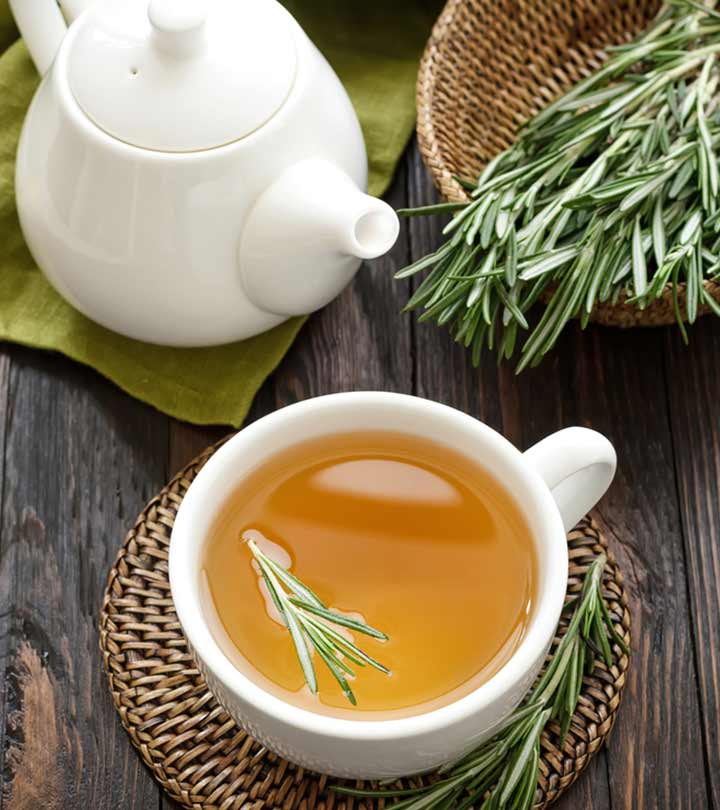
Table of Contents
Health
Benefits of fasting for 24 hours
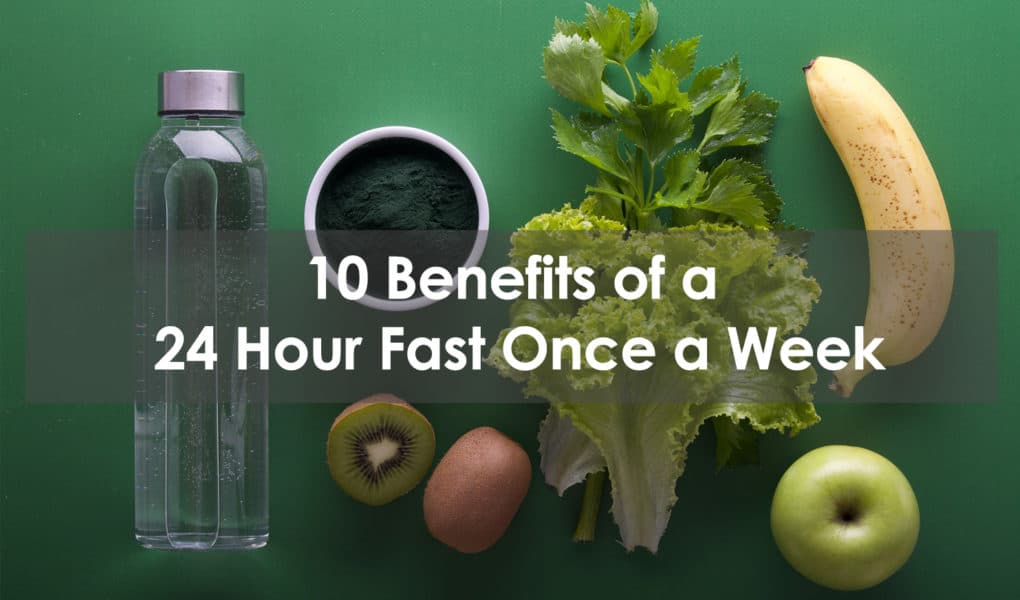
Discover the benefits of fasting for 24 hours.
24-hour intermittent fasting is often recommended for weight loss, but also its many health benefits.
In this article, I detail the benefits of intermittent fasting, and particularly its practice over 24 hours. You will also be able to find my testimonial and my advice for a successful 24-hour intermittent fasting.
24hr Intermittent fasting to live longer in good health!
This sentence comes up constantly when one is interested in the subject. Simple fashion effect or real health interest? That’s the real question.
The objective of this practice is based on calorie restriction and resting the digestive system as a whole.
When we eat too much, binge, and get too much protein, our aging process is accelerated. Our body ages faster. To counter this effect, it is, therefore, necessary to fast. You boost your production of growth hormone, a hormone of youth.
In practice, it remains very complicated. It was Dr. Valter Longo who simplified the practice of intermittent fasting to reap all the health benefits. But in reality, is it effective?
The benefits of 24 hours intermittent fasting
Many scientific studies have highlighted the following health benefits of intermittent fasting:
• Promote weight loss, maintenance, lower bad cholesterol and increase well.
• Reduce cardiovascular and cancer risks.
• Regulate blood sugar by lowering insulin production and increasing fat metabolism.
• Lower the markers of inflammation ( responsible for the aging process ).
• Stimulate growth hormone production ( 2000% during 24-hour intermittent fasting ). This molecule helps you fight to age, tap into your fat and increase your muscle mass.
• Regulate hormonal disturbances after meals.
• Diversify the composition of the intestinal flora.
• Improve the quality of sleep.
It should be noted that these benefits are mainly found in a population that is overweight or obese, sedentary, or suffering from metabolic disease. The effects of intermittent fasting in healthy, physically active, or athletic people seem small to non-existent.
Intermittent fasting and weight loss
According to scientific research, intermittent fasting is effective for weight loss.
The main reason for the effectiveness of intermittent fasting on weight loss is calorie restriction.
Indeed, skipping one or more meals considerably reduces your food consumption. You then find yourself in an energy deficit, and your body has no choice but to draw on the stock of glycogen and fats to continue to function.
Practiced 1 to 2 times a week, over 3 to 24 weeks, intermittent fasting can lead to a weight loss of 3 to 8% of the initial weight, with a non-negligible share of abdominal fat (reduction in the circumference of cut).
However, over the long term, the evidence on the effectiveness of intermittent fasting remains very weak. We don’t know if, as with all low-calorie diets, it leads to a Yoyo effect and significant regain of lost pounds.
To lose weight permanently, mainly fat, while maintaining your muscle mass, it is advisable to combine a slight caloric restriction and the practice of sport regularly.
Need to lose weight permanently?
My Sport to lose weight program has already enabled hundreds of people to lose weight, improve their health and be in better shape! It includes sports sessions in videos, tools to calculate your fat loss, tips for starting running, recipes, and much more… It’s never too late to start the sport and lose weight for your health.
Opinion on the intermittent fasting 24h
So I wanted to get to the bottom of it and test this practice. To simplify things, Dr. Longo has been testing different protocols for several years. Simpler protocols to apply daily while maintaining the benefits. For people with a healthy lifestyle, practicing 24 hours a month is very effective.
So I fasted for 24 hours. The easiest way is to start after dinner. You eat dinner normally, then nothing until dinner the next day. Hydrate well. You can also consume tea, coffee, infusions but without sugar.
I was afraid of being too hungry, of being a wreck unable to move. And not at all. I did my intermittent fast one day back from vacation, in the car. I felt good, without a stroke. What a pleasure to sit down to eat in the evening, even if the goal is to eat normally and no more than usual.
I resumed the sport the next day with a big day ( 3h30 of cycling chained to 1h of jogging ). I felt good, I didn’t have any cravings. I even recovered better. I am full faster on the meals that follow. The results are very positive.
However, here are some tips to guide you:
• No sport on the day of intermittent fasting, or a short cardio session (30 minutes).
• Take care. Get out of your house, otherwise, the day will be too long to manage unless you have plenty of tasks to accomplish.
• Don’t throw yourself on the food when you eat again. Don’t say to yourself: “it’s good, I’ve done the hardest I can let go”.
• Remember to drink well ( 1.5 to 2 liters of water ) and take hot drinks for satiety.
Be careful if you have medical treatment, do not do it. I do not know the actions of this practice under these conditions. A drug does not have the same effect in these conditions, so check with your doctor.
I await your reactions after your tests. Intermittent fasting is increasingly practiced in the United States, to fight against junk food and diseases of civilization. Its health benefits are undeniable. Live old and above all live better!
Health
Benefits of hibiscus tea for skin

Table of Contents
- Benefits of hibiscus tea for skin
- Greater elasticity in the skin
- Prevents and fights cell damage
- Hydrates in depth
- Unifies skin tone
- Discover the benefits of hibiscus tea for skin.In today’s post we want to offer you a wonderful option to enhance your health and even take care of your beauty with a gift from nature whose qualities have been known for thousands of years.
We want to talk about the Hibiscus tea, a plant native to China and Japan, also known as China rose, whose extract has a wide range of properties, among which are antiseptic, digestive, diuretic, and others that we will detail below.
Its cosmetic properties are so amazing that it has been called “vegetable Botox”, rich in antioxidants and vitamin C.
Its effects after constant consumption in the form of an infusion, for example, have been compared to the effects of Botox injections, since its tightening effect helps to hide expression lines and sagging of the face.
Its active components act at the cellular level, nourishing and moisturizing the dermis, creating a wonderful anti-aging effect.
There are 5 different varieties of Hibiscus in the world: Hibiscus Rosa Sinensis, the best known in Spain, Hibiscus esculentus, Hibiscus sabdariffa, and Hibiscus tiliaceous.
Its flower is edible and its different forms of presentation, in powder, in preparation for infusion, or syrup, allow us to take it comfortably and prepare masks that will surely become great allies for your skin and hair.
In India, hibiscus has traditionally been used to treat hair problems, reduce dandruff, moisturize the scalp while nourishing and strengthening it, and even prevent the appearance of gray hair.
Benefits of hibiscus tea for skin
Greater elasticity in the skin
As we have previously mentioned, the Hibiscus tea will provide us with its tensor effect, greater elasticity, and firmness in the skin, keeping it looking young for longer.
Prevents and fights cell damage
Hibiscus tea fights free radicals that cause oxidation that starts the aging process in the skin, the largest and heaviest organ in the body.
Hydrates in depth
After using the usual cleansers we remove the moisture and natural agents that protect our skin, if we regularly use hibiscus masks we will ensure that our facial skin is sufficiently hydrated avoiding dryness and its unwanted consequences.
Unifies skin tone
Hibiscus is known for its exfoliating and anti-blemish action and its beneficial effects in cases of hyperpigmentation, unifying the tone and softening the features.
For all these benefits, the Hibiscus tea is considered a natural and effective anti-aging recipe, do not forget to try it.
Related Searches…
Hibiscus tea for skin whitening
Hibiscus tea benefits hair
How to make hibiscus tea
Benefits of hibiscus for lips
Hibiscus for skin tightening
How to use hibiscus for acne
Benefits of hibiscus oil for skin
Hibiscus flower benefits for hair and skin
Hibiscus tea effect on kidneys
Hibiscus powder benefits
Homemade hibiscus face cream
Hibiscus soap benefits for skin
-

 Food9 months ago
Food9 months ago10 + Benefits of carrot juice and side effects
-

 Food9 months ago
Food9 months ago8 shocking benefits of leek juice and side effects
-

 Health9 months ago
Health9 months agoBenefits of guava leaves Sensually
-

 Health9 months ago
Health9 months ago5 Shocking health benefits of kinkeliba and side effects
-

 Health7 months ago
Health7 months ago50 Super Healthy (And Very Often Cheap) Foods
-

 Health9 months ago
Health9 months ago13 shocking health benefits of Thai eggplant
-

 Health9 months ago
Health9 months ago7 health benefits of cashew leaves and side effects
-

 Health9 months ago
Health9 months ago10 shocking health benefits of Canary seed milk



